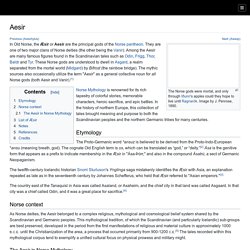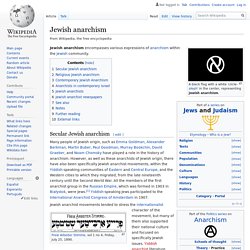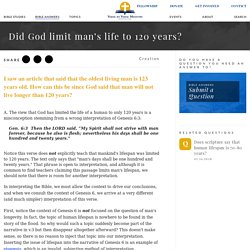

Www.newworldencyclopedia. The Norse gods were mortal, and only through Iðunn's apples could they hope to live until Ragnarök.

Image by J. Penrose, 1890. The return messianic jews. Jewish anarchism. Jewish anarchism encompasses various expressions of anarchism within the Jewish community.

Secular Jewish anarchism[edit] Terumah parsha Kabbalah zohar volume - Google Shopping. Shopping AccueilRayons MagasinsVos articles enregistrésCommandesPanierMes contributionsParamètresÀ propos de Google ShoppingAide Confidentialité•Conditions d'utilisation•Signaler un abus Connexion Le produit est introuvable.Essayez de rechercher terumah parsha Kabbalah zohar volume sur Google Shopping.

Accueil GoogleSolutions publicitairesSolutions d'entrepriseConfidentialité et conditions d'utilisationÀ propos de Google Google est rémunéré par ces marchands. Www.sefaria. Isaac Bashevis Singer. Isaac Bashevis Singer (Yiddish: יצחק באַשעװיס זינגער; November 21, 1902 – July 24, 1991) was a Polish-American writer in Yiddish,[1] awarded the Nobel Prize in Literature in 1978.[2] The Polish form of his birth name was Icek Hersz Zynger.[3] He used his mother's first name in an initial literary pseudonym, Izaak Baszewis, which he later expanded.[4] He was a leading figure in the Yiddish literary movement, writing and publishing only in Yiddish.

He was also awarded two U.S. National Book Awards, one in Children's Literature for his memoir A Day Of Pleasure: Stories of a Boy Growing Up in Warsaw (1970)[5] and one in Fiction for his collection A Crown of Feathers and Other Stories (1974).[6] Life[edit] Krochmalna Street in Warsaw near the place where the Singers lived (1940 or 1941) Commemorative plaque at 1 Krochmalna Street in Warsaw Isaac Bashevis Singer was born in 1902 in Leoncin village near Warsaw, Poland, under military partitions by the Russian Empire. World War I[edit] Notes[edit]
Hittites. Secrets of the Star of David. Star of David on the 1000-year old Leningrad Codex (1008 CE).

This week’s double parasha is Vayak’hel-Pekudei, which speaks of the Sabbath, the construction of the Tabernacle, and the formal establishment of the priesthood. Maimonides. Commonly used image indicating one artist's conception of Maimonides's appearance Moshe ben Maimon (March 30, 1135 – December 13, 1204) was a Jewish rabbi, physician, and philosopher.

Moshe ben Maimon's Hebrew name is רבי משה בן מיימון and his Arabic name is موسى بن ميمون بن عبد الله القرطبي الإسرائيلي, Mussa bin Maimun ibn Abdallah al-Kurtubi al-Israili. However, he is most commonly known by his Greek name, Moses Maimonides (Μωησής Μαϊμονίδης), and many Jewish works refer to him by the acronym of his title and name, RaMBaM or Rambam (רמב"ם). Maimonides is typically regarded as the greatest of the medieval Jewish philosophers.
Studies. Verse By Verse Ministry International. A.

The view that God has limited the life of a human to only 120 years is a misconception stemming from a wrong interpretation of Genesis 6:3: Gen. 6:3 Then the LORD said, “My Spirit shall not strive with man forever, because he also is flesh; nevertheless his days shall be one hundred and twenty years.” Notice this verse does not explicitly teach that mankind's lifespan was limited to 120 years. The text only says that "man's days shall be one hundred and twenty years. " That phrase is open to interpretation, and although it is common to find teachers claiming this passage limits man's lifespan, we should note that there is room for another interpretation. In interpreting the Bible, we must allow the context to drive our conclusions, and when we consult the context of Genesis 6, we arrive at a very different (and much simpler) interpretation of this verse.
Gen. 6:3 Then the LORD said, “My Spirit shall not strive with man forever, because he also is flesh; nevertheless his days shall be one hundred and twenty years.”
The-Laws-and-Customs. How a Mezuzah is Written The commandment of mezuzah requires that two portions from the Pentateuch, the chapters of Shema and Vehayah, be written on a parchment according to rigorous rules and be affixed to the right doorpost of every doorway or gate in the house.

Four thousand, six hundred and forty-nine laws govern every aspect of writing a mezuzah. The mezuzah is written on a parchment made from the skin of a kosher animal. This does not mean that the animal has to be slaughtered according to the laws of shechitah (ritual slaughter). It means only that the skin must be from an animal of the kosher species, such as a cow, sheep, or goat. …in order that the law of the L-rd may be in thy mouth. The Sages explain this verse to mean that the Law may only be written on the skin of a kosher animal whose flesh is permitted to be placed in one’s mouth. The mezuzah is inscribed by hand, as it is written, “You shall write them...” on a parchment made especially for this purpose. Similarly, Prayers.
Www.amazon.
Torah anytime. Kabbalah. Halacha. Kosher food. Yarmulke, kippah, and yamulka. Keneh Bosem. Clothing. Hie.